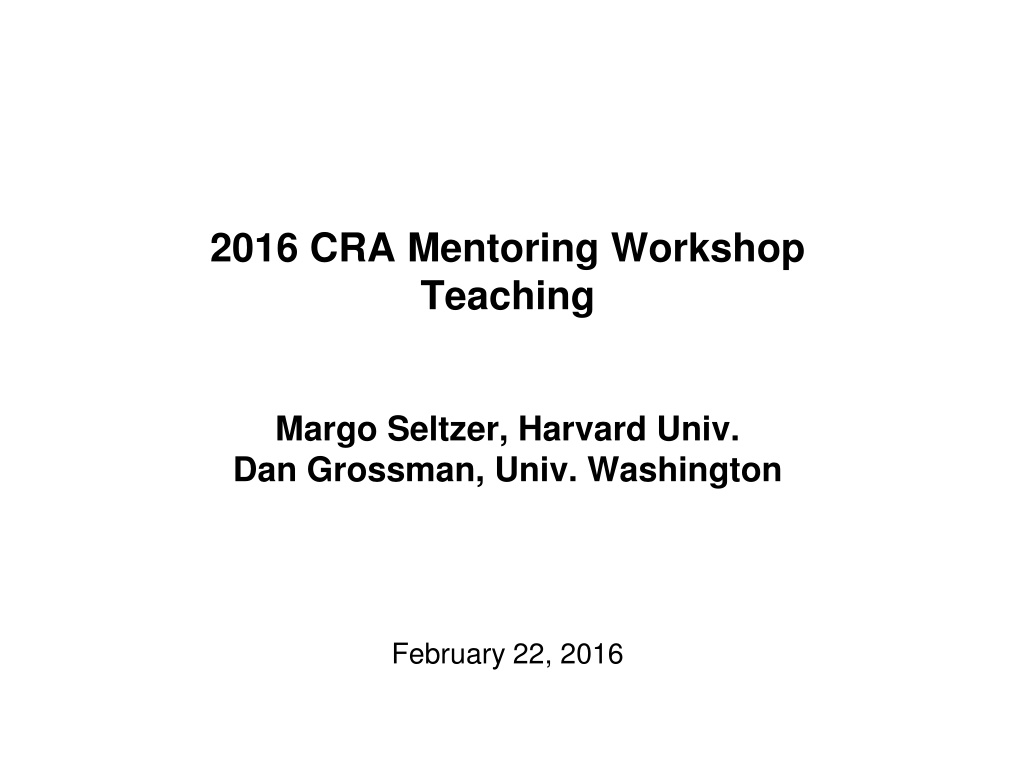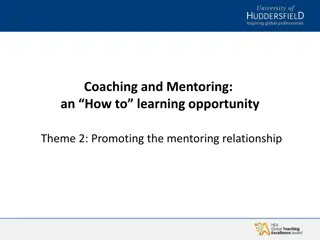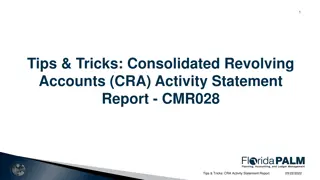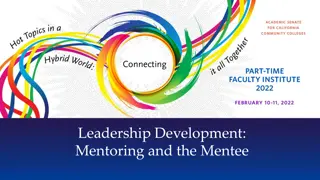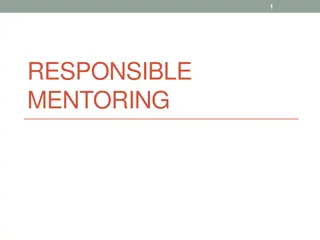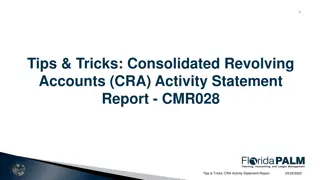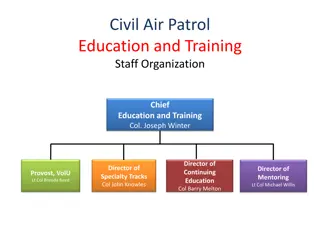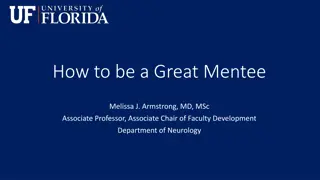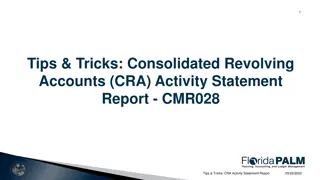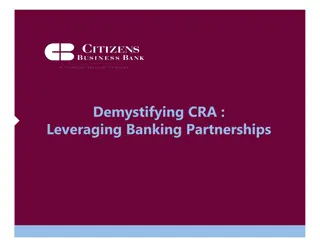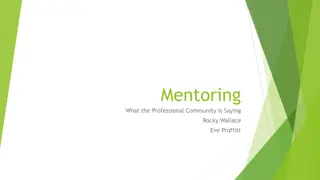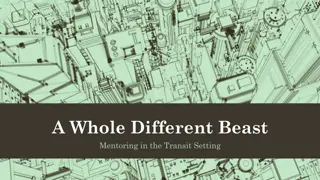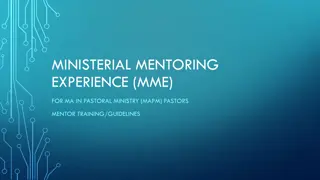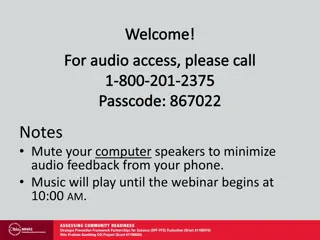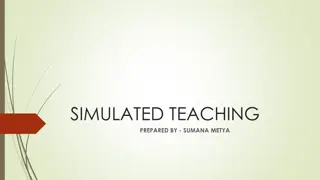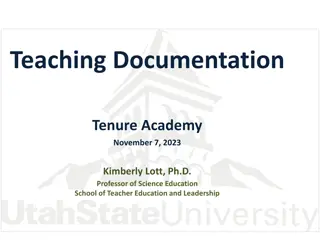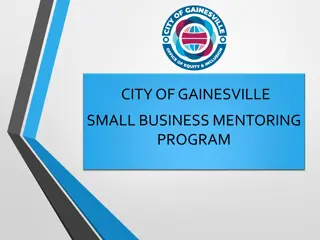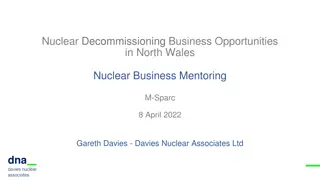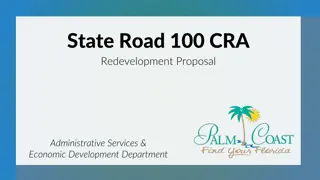Enhancing Teaching Skills: 2016 CRA Mentoring Workshop Highlights
Experienced faculty members Margo Seltzer and Dan Grossman share insights on effective teaching methods in the 2016 CRA Mentoring Workshop. The workshop covers creating learning objectives, understanding student diversity, and practical teaching strategies. Participants engage in group exercises to identify teaching tactics and pitfalls. Key takeaways stress the importance of knowing university rules and student backgrounds.
Download Presentation

Please find below an Image/Link to download the presentation.
The content on the website is provided AS IS for your information and personal use only. It may not be sold, licensed, or shared on other websites without obtaining consent from the author. Download presentation by click this link. If you encounter any issues during the download, it is possible that the publisher has removed the file from their server.
E N D
Presentation Transcript
2016 CRA Mentoring Workshop Teaching Margo Seltzer, Harvard Univ. Dan Grossman, Univ. Washington February 22, 2016
Introduction Us: Two experienced faculty who passionately love teaching Have improved methodically over time You: A range of experience and passion From deeply apprehensive to exuberantly eager Workshop aimed at all of you Focus and approach: Assume conventional undergraduate courses, but much applies more broadly Practice what we preach Activities and interaction -- not lecture Explicit learning objectives February 22, 2016 2016 CRA Mentoring Workshop: Teaching 2
Objectives After this workshop, you should be able to: 1. Identify the learning objectives for any courses you teach 2. Teach according to the rules established by your university 3. Experiment with techniques to increase student interaction 4. Prepare for teaching challenges and discuss trade-offs with colleagues Alas, 45 minutes is laughably short: Also motivate you to spend a lifetime improving February 22, 2016 2016 CRA Mentoring Workshop: Teaching 3
Warm-up #1 Rules governing teaching at your institution? February 22, 2016 2016 CRA Mentoring Workshop: Teaching 4
Take-aways There are rules: Violating them creates unnecessary crises Go learn what they are and why they exist February 22, 2016 2016 CRA Mentoring Workshop: Teaching 5
Warm-up #2 How are your students different than you? Background, interests, abilities, goals, February 22, 2016 2016 CRA Mentoring Workshop: Teaching 6
Take-aways Essential to know where your students are coming from Technically and personally Likely < 1 / year will follow the career path you have 50% are going to receive the median grade or lower February 22, 2016 2016 CRA Mentoring Workshop: Teaching 7
Group-exercise #1 Logistics: Groups of 5-8: organize quickly 8-10 minutes of discussion 5 minutes of full-group scribed synthesis Topic: From each group member: 3 things you ve seen a teacher do you want to emulate 3 things you ve seen a teacher do you want to avoid Objective: A concrete list of tactics and pitfalls About any aspect of a course (classroom, homeworks, grading, office hours, ) February 22, 2016 2016 CRA Mentoring Workshop: Teaching 8
Take-aways (We will make the list available) Learn from your experience and others! A lot of simple tactics go a long way Margo s #1 tactic: __________ Dan s #1 tactic: Never give a homework/exam problem you do not already have a written solution for February 22, 2016 2016 CRA Mentoring Workshop: Teaching 9
Lead-in to group-exercise #2 Have you written a syllabus? How do you describe the course? February 22, 2016 2016 CRA Mentoring Workshop: Teaching 10
Example: Sorting Topics: Learn insertionsort, quicksort, mergesort, Study the algorithms and complexities and trade-offs Learning objectives: Distinguish between O(n2) and O(n log n) sorting algorithms Implement an efficient sort routine Use the libc qsort function February 22, 2016 2016 CRA Mentoring Workshop: Teaching 11
Why learning objectives? Outcome-oriented Makes clear to you and students what to assess Does your homework help achieve your objectives? February 22, 2016 2016 CRA Mentoring Workshop: Teaching 12
Your turn: In your small group, create sample learning objectives for 2-3 of these topics Hash tables Finite automata Dynamic memory allocation Classes/Objects Big O notation Turing machines February 22, 2016 2016 CRA Mentoring Workshop: Teaching 13
Take-aways No right answer: depends on the course and your goals Learning objectives are about what students can do And can be evaluated February 22, 2016 2016 CRA Mentoring Workshop: Teaching 14
Group-exercise #3 Teaching involves challenges you need to manage Difficult situations with no perfect outcome Out of time, so discuss 1-2 of these over lunch and enter your ideas on our Google Poll http://tinyurl.com/teaching-challenges (Responses available to all) February 22, 2016 2016 CRA Mentoring Workshop: Teaching 15
Wrap-up Much you needto learn that we didn t discuss: Designing a course schedule Holding effective office hours Assigning grades Find good mentors for this stuff ! We focused on bigger-picture ideas February 22, 2016 2016 CRA Mentoring Workshop: Teaching 17
High-level points 1. Know your context: what are the rules, who are your students 2. Objectives: What do want students to learn? Have explicit plans and goals. 3. Skills matter: What to emulate and avoid? 4. Be prepared for the hard stuff and do your best 5. Always room for improvement Scribed notes will be at: http://tinyurl.com/teaching-session-notes February 22, 2016 2016 CRA Mentoring Workshop: Teaching 18
